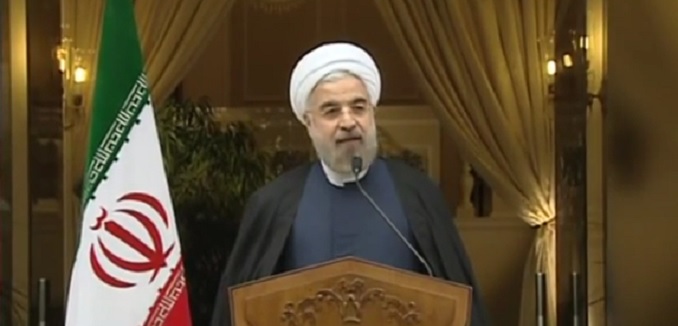Reuters reported Wednesday that Iran’s crude exports to China in April had more than doubled from where they were a year ago – the final number constituting an all-time record high:
China’s imports, added to India’s shipments of about 225,000 bpd in April and South Korea’s 135,000 bpd, put Asia’s purchases of Iranian crude for last month over the 1 million bpd limit – with Japan still to report its oil import data later in May.
Under the temporary deal that went into effect in January, Iran’s exports are supposed to be held at an average 1 million bpd for the six months to July 20, but shipments arriving in Asia have topped that mark since November, according to customs and ship tracking data.
The dynamic has been explicitly documented month by month, but Obama administration officials had expressed themselves unconcerned. White House and State Department spokespeople had emphasized their belief that Iran would slip underneath the JPA’s export cap any month now, and that the total over the agreement’s six-month period would average to the allowed 1 million barrels per day (bpd) level.
The new figures come as analysts are expressing increasingly pointed worries that the administration has allowed the JPA’s erosion in sanctions to slip out of control. Mark Dubowitz, executive director of the Foundation for Defense of Democracies, worried on Thursday in the National Interest that a robust deal putting Iran’s nuclear program beyond use for weaponization could become unreachable:
Despite the current impasse in negotiations with the Islamic Republic of Iran over the fate of its once-clandestine military-nuclear program, U.S. officials remain hopeful that a final accord is within reach. An agreement that is verifiable, enforceable and that prevents Iran from pursuing both a uranium and a plutonium pathway to a nuclear weapon would be a tremendous achievement. But we may not get there if American negotiators continue to insist upon weakening their leverage.
Dubowitz more specifically worried that the JPA’s erosion in coercive financial pressure had triggered a “too rapid… shift from fear to greed in the international business community, and from despair to hope in the Iranian market,” the result being that the effectiveness of sanctions had been blunted.
The article specifically cited new models and analysis – co-developed by FDD and Roubini Global Economics – suggesting that economic optimism in Iran was trading off with leverage that Western negotiators intend to lean on.
[Photo: PressTV videos / YouTube]




